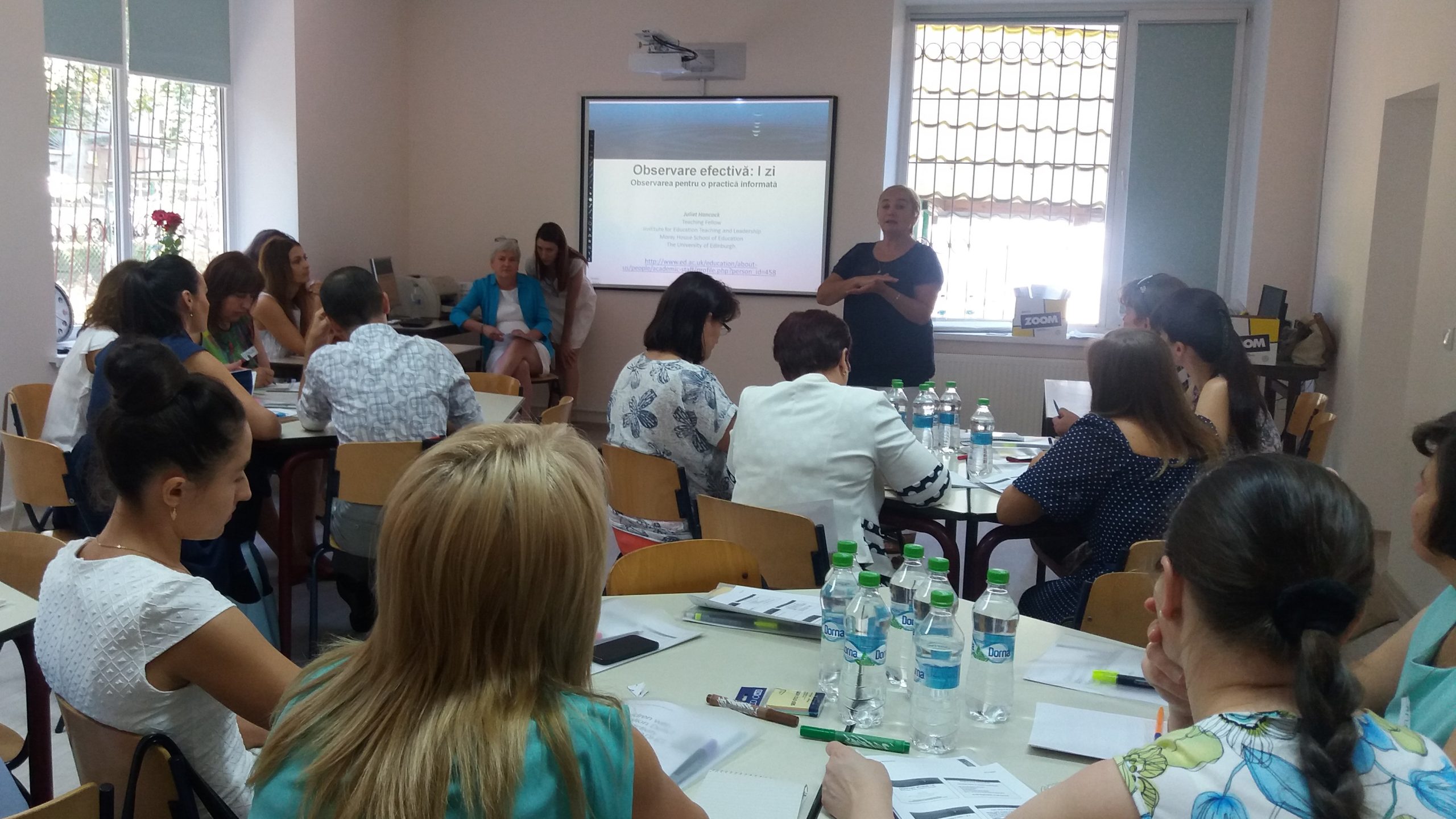Promoting Shared Understanding Of Quality Education For Children

Project duration: January, 2016 – December, 2018
Implementing organization: Programul Educational Pas cu Pas / Step by Step Moldova
Implementing partners: Ministry of Education
Financial support: the Foundation Liechtenstein Development Service (LED)
Project goal: to contribute to building a shared understanding of a child-centered education principles translated into practice at different levels of the education system, to support new ways of on-the-job professional development and to improve the pre-service teacher training
SBSM overall goal for the phase III of the project Promoting a shared understanding of quality education for children was to contribute to building a shared understanding of a child-centered education principles translated into practice at different levels of the education system, to support new ways of on-the-job professional development and to improve the pre-service teacher training.
The results of project implementation as related to the project objectives are the following:
OUTCOME 1: Increased capacity of the SBSM team of experts to promote quality child-centered education based on ISSA Professional Development Tool
Output 1.1. SBSM has strengthened the project trainers/mentors’ skills to reflect on and improve their own classroom practices, and to build their capacity as trainers and mentors for other practitioners:
- 34 SBSM experts have advanced their skills (6 ToTs and 31 credibility establishing exercises),, first as classroom practitioners implementing and modeling child-centered education at preschool an school levels, and also as trainers and mentors guiding on–the-job learning communities in project kindergartens and primary schools towards developing competent observation and critical reflection skills.
Output 1.2. Dissemination of good practices and networking.
- Good practices shared through trainings, publication, on the re-designed web page (examples of teaching and learning activities designed and carried out, short articles/ reflection on their professional development etc.);
- 5 issues of newsletters posted on the web-page and distributed during trainings / mentoring visits;
OUTCOME 2: Better cooperation between project institutions and cross-level coherence in practices based on a common understanding of quality child-centered education.
Output 2.1. The SBSM team of mentors has supported the staff from 21 kindergartens at local level to continuously improve the quality of their practices:
• 277 preschool teachers from 21 partner kindergartens started improving their classroom practices for CCE, supported by SBSM mentors at their own work pace, following their own professsional development needs. ( 9 rounds of mentoring visits, 3 per year).
Output 2.2. Trainings and mentoring for primary school teachers from the 15 partner schools on quality child-centered education:
• 91 primary school teachers from 15 partner schools got a better understanding of how CCE principles are translated into practice due to centrallly organized events (six 2-day trainings) on the premises of the main SBSM promoter of CCE in Chisinau, kindergarten primary-school nr.152;
• 170 primary school teachers got a better understanding of what are and what are not child-centered practices and an increased capacity to reflect on their own practices, based on ISSA Professional Development Tool ( 3 rounds of mentoring visits, with classroom observations (30) and mentoring workshops,
Output 2.3. Activities to support whole-school transformation and better cooperation across levels in partner schools through a value based approach to teaching-learning practices.
• 264 participants were helped to deepen their understanding of the values and reflect on the beliefs underlying their practices beyond simple teaching subject contents, to consider issues of continuity of pedagogical approaches to facilitate a smoother transition of children from primary to secondary and to high levels (based on 6 two-day thematic modules developed by SBSM locally delivered to whole school staff in 15 project institutions (
OUTCOME 3: Partner Teacher Training institutions better prepare future preschool and primary school teachers targeting child-centered education and new demands in teaching profession
Output 3.1. Activities supporting the reform in pre-service teacher training: contribution to policy-level decision and development of documents for the TT institutions; support materials for courses on special didactics – workshops for faculty from partner TT institutions focused on observation/evaluation, reflection skills development during teacher student’s practicum.
- 21 representatives from 6 pedagogical universities/colleges (local trainers) have reportedly started to use (due to 9 days of trainings) more interactive teaching strategies, focus more on observation and reflection skills development in their students, have revised the theory/practice ratio for some courses (based on the focus group discussions).
- 73 faculty from 4 universities and 2 pedagogical colleges further trained by local trainers.
- 10 faculty staff in charge of students’ pedagogical practice and their students participated in the on-site mentoring activities provided by the SBSM experts, using ISSA Short Assessment Instrument and PDT for classroom observations and reflective de-briefing..
Output 3.2. Support /learning materials for practitioner
• The Professional Development Tool, a valuable resource from ISSA Quality Resource Pack, which provides scalableexamples of practices on a continuum of quality improvement, was translated and printed (1000 copies) to help promote shared understanding, distributed to all target groups involved in the project.
• ISSA resource Roads to Quality – a guidebook illustrating the network’s vision for sustaining high-quality practices in early childhood education and care settings – was translated, printed (in 1000 copies) and distributed to the project institutions.
• 16 video materials, collected during the field mentoring visits were developed by SBSM to support critical reflections on quality in CCE were turned inti didactic videos focusing specific issues as change triggers.